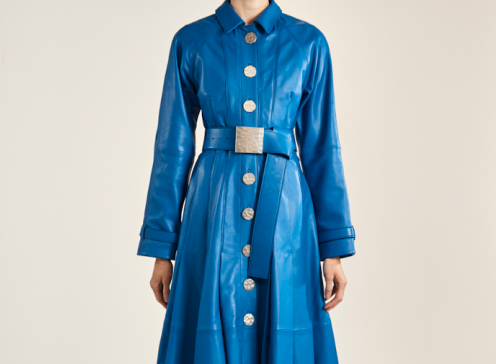Ask yourself: Will this satisfy
a woman satisfied to bear a child?
Will this disturb the sleep
of a woman near to giving birth?
—Wendell Berry, “Manifesto: The Mad Farmer Liberation Front”
Wendell Berry wrote that poem before I was born, but it set me on a trajectory of transformation.
In late 2012, I left my job at Allergan, having completed years of rewarding work developing a silk-based biomedical device that would be used in breast reconstruction. I’d come to love silk in its fiber form for use as a biomaterial—the human body has the ability to digest the silk fiber down to its individual proteins and further, which makes it exciting to work with as a chemist who is interested in biology.
I’d loved what I was doing at Allergan, and it introduced me to the world of aesthetic medicine, specifically skin care—but my long-term partner in business and chemistry, Beck Lacouture, and I were ready to put this chapter of our work to rest. We had become pretty invested in women’s health by working with this device, and we both thought we might want to go further in that arena but weren’t sure how. So we left Allergan and took some time to figure out what we could do next. During this time, I was sitting in my wife’s home office, and she had this quote from poet Wendell Berry on the wall, the idea being that we should judge our actions and decisions by whether they would disturb the sleep of a pregnant woman. It hit me that with what I was learning about skin care, if I were to tell a pregnant woman what was in the skincare products she was using, it might well disturb her sleep.
I’m a protector by nature; it’s part of how I approach the world. So that moment of clarity made me ask whether the chemistry we’d been working with could let us tell that woman exactly what was in the products she was putting on her body and allow her to get a full night’s rest. Beck shares that caretaking instinct, and during this time after we’d left Allergan, we finally had a moment to sit down and ask ourselves, What do we want to do with this one life we have? Did we want to teach college for the rest of our lives? We knew we could both be incredibly happy doing that. Did we want to do another medical device? We knew we had more medical devices in us that could impact people’s lives—maybe 100,000 people, maybe a million if we’re lucky and it’s the right device.
Our work with the breast reconstruction device meant that Beck and I knew silk inside and out. We knew we had special skills we could contribute to the world, and we were highly aware of the public health ramifications of the unrestricted use of chemistry in consumer goods. Using our knowledge of silk to build a green chemistry company with the purpose of advancing human and environmental health could be the way that we contributed. Improving the health of a million people with our biomedical device was great. With this, we could improve the health of 100 million people. A billion people. That was when we decided, Yes. This is worth our life’s work. Let’s go do that.
There’s an elation involved with the act of creation, a moment of genesis when a new idea strikes and all the pieces are in the right place. That elation used to happen in the lab for me. Now it hits me when I can bring together the right team and resources to empower a chemically creative process to fulfill a need. Doing that with Evolved By Nature—using a workable technology to fulfill an unmet need—is a high unlike any other I’ve felt.
